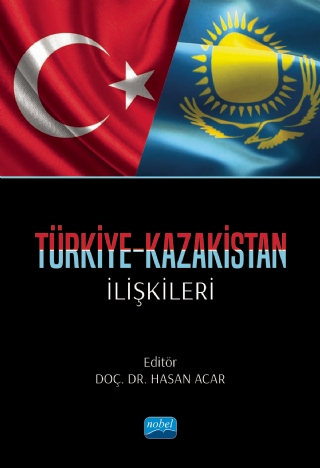Türk Dünyası Çalışmaları \ 1-1
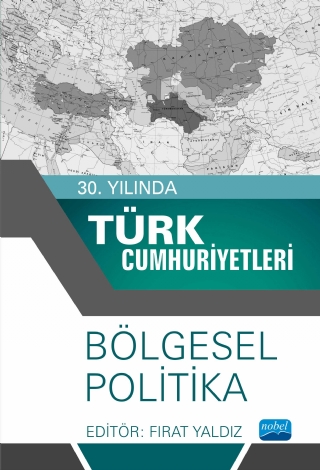
Bağımsızlıklarının 30. Yılında Türk Cumhuriyetleri kitap serisi, alanında uzman yazarların değerli emekleri sonucund...
Devamını Göster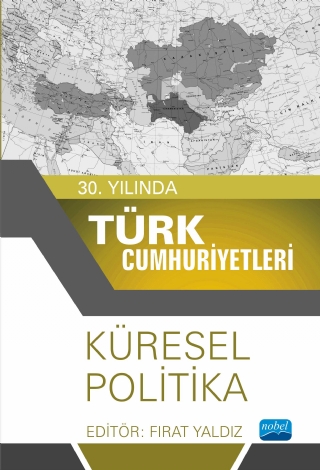
Bağımsızlıklarının 30. Yılında Türk Cumhuriyetleri kitap serisi, alanında uzman yazarların değerli emekleri sonucunda ortaya çıktı. Üç kitaplık bu seride Türk Cumhuriyetleri’nin 30 yıllık yolculuğ...
Devamını Göster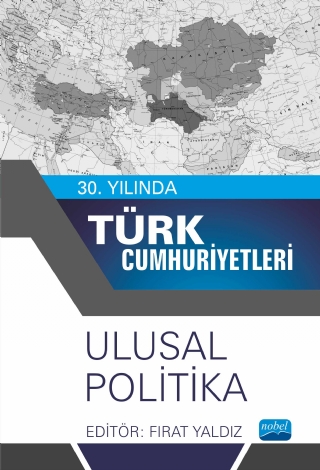
Bağımsızlıklarının 30. Yılında Türk Cumhuriyetleri kitap serisi, alanında uzman yazarların değerli emekleri sonucunda ortaya çıktı. Üç kitaplık bu seride Türk Cumhuriyetleri’nin 30 yıllık yolculuğu,...
Devamını Göster
Anadolu ve Kafkas coğrafyalarda güç sahibi olmak isteyen emperyalist devletler başta Osmanlı olmak üzere Türklerin egemenliğini parçalamak istiyorlardı. Parçalanmayı gerçekleştirmenin en uygun yollarından biri de buralarda yaşayan gayrimüslimlerle ilgilenmekti. Bu ilgiyle ırkçılık tohumları aşılanan Ermeniler, dış güçlerin destek ve kış...
Devamını Göster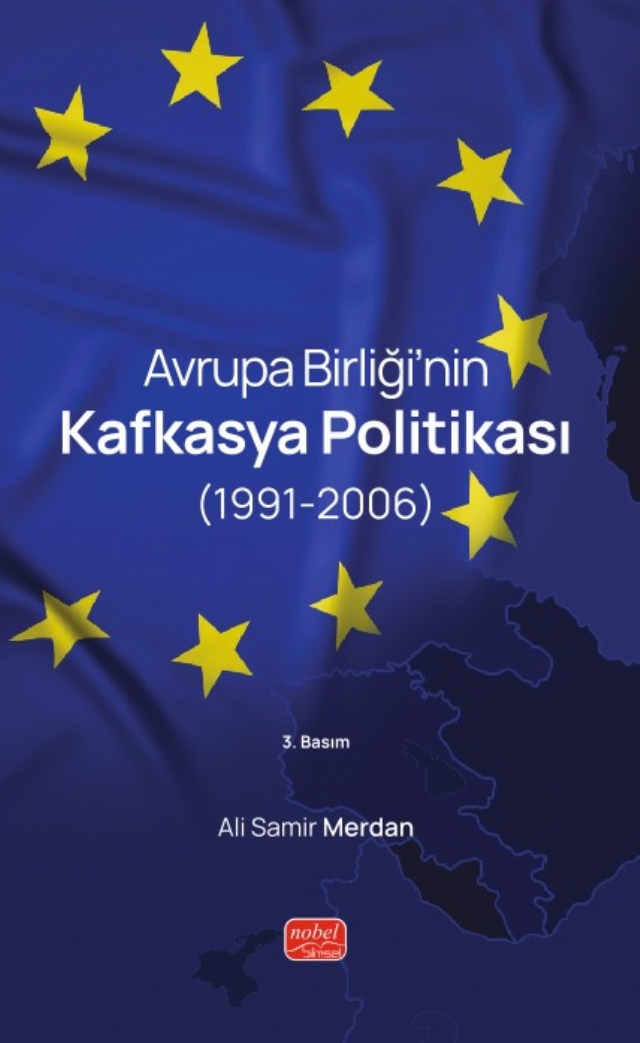
Soğuk Savaş sonrası dönemde dinamik bir yapı benimseyen Avrupa Birliği, zengin doğal kaynaklara ve stratejik öneme sahip Kafkas ülkeleriyle ilişkilerini geliştirmeye başlamıştır. Avrupa Birliği; öncelikle TACIS Programı adı altında bu ülkelere mali yardımlarda bulunmuş, daha sonra İpek Yolu’nun Yeniden Canlandırılma Politikası ile Enerj...
Devamını Göster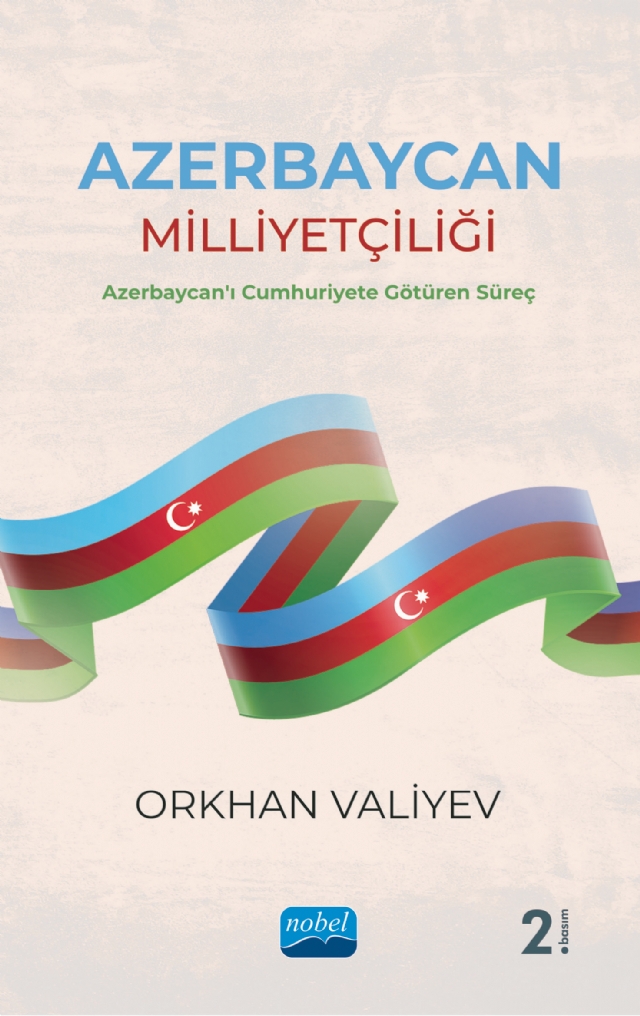
Modern Batı siyasal düşüncesinde, sanayileşme; ticaretin artması ve iletişim olanaklarının bir çıktısı olarak doğmuştur. Oysa öteki toplumlarda milliyetçilikten ziyade onu doğuran millî hareketlerden bahsetmenin daha doğru olacağı ifade edilebilir. Zira ulusların kitlesel doğum asrı olan on dokuzuncu yüzyılda sömürge altında olan halkları...
Devamını Göster
İkinci Karabağ Savaşı'yla birlikte Azerbaycan’ın İran ve İsrail ile ilişkileri ilgi odağı hâline gelmiştir. Böylece bir Güney Kafkasya devleti olarak Azerbaycan’ın Orta Doğu’ya nasıl baktığı, hangi önceliklerle hareket ettiği gibi sorular da akla gelmeye başlamıştır. Devletlerin dış politikalarını, birbirinden çok farklı araçlarla ve teorik...
Devamını Göster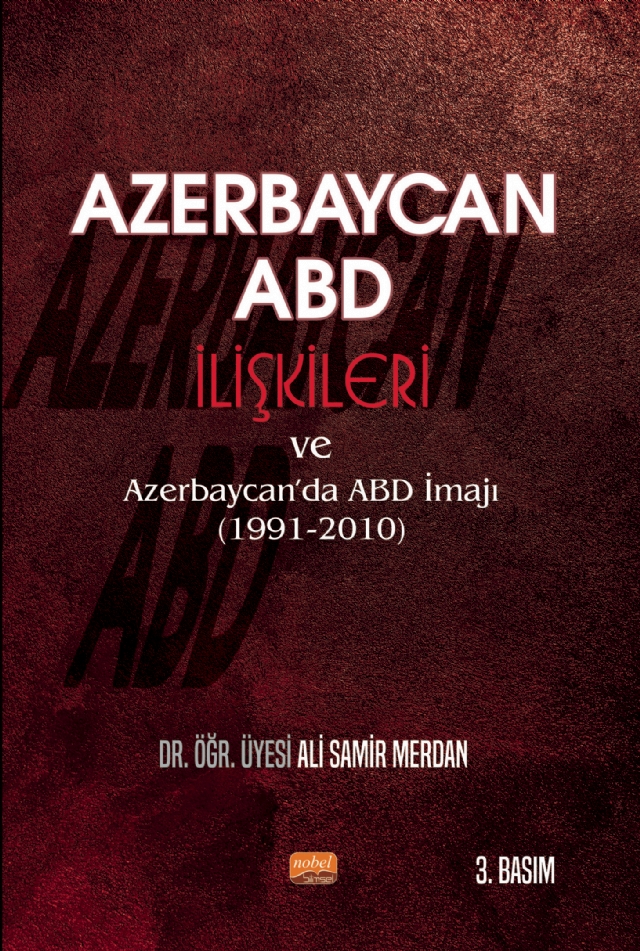
1991-2010 dönemini kapsayan Azerbaycan-ABD ilişkilerinde, ilk başlarda bazı olumsuzluklar nedeniyle belirsizlik dönemi yaşanmışsa da 1994'ten itibaren yakınlaşma dönemi başlamış ve 2001'den itibaren de olumlu gelişmelerle iş birliği dönemine girilerek 2010'a kadar devam etmiştir. Bu durum, hem Azerbaycan yönetiminin yürüttüğü dış politi...
Devamını Göster
Bosna Savaşı’nın üzerinden otuz yıl gibi bir süre geçmiş olmasına rağmen savaşın ortaya çıkmasında rol oynayan faktörlerle ilgili tartışmalar varlığını korumaktadır. Kuramsal çerçeve olarak Kopenhag Okulu güvenlikleştirme yaklaşımının kullanıldığı bu eserde, savaşa giden süreçte ayrılıkçı Sırp lider Radovan Karadziç ve Bosna-Hersek’i...
Devamını Göster
1956 yılında İngiliz askerlerinin Lefkoşa Surlar İçi sokaklarına çektiği tel örgülerle oluşmaya başlayan Yeşil Hat, Kıbrıs Adası üzerinde yer alan iki halkın düşünsel bölünmüşlüğünü fiziksel olarak simgelemeye devam ediyor. Bu kitap, Kıbrıslı Türkler ile Kıbrıslı Rumlar arasındaki derinden bölünmüşlüğün kök nedenlerini ortaya koyarak aynı ...
Devamını Göster
Bu derleme kitap kapsamında Orta Asya'da nüfuz mücadelesi veren aktörlerin (Amerika Birleşik Devletleri, Avrupa Birliği, Çin, Rusya, Japonya, Güney Kore, Türkiye, İran, Hindistan, Pakistan, Suudi Arabistan ve Körfez ülkeleri) böl...
Devamını Göster
Prof. Dr. Kumakura Jun tarafından kaleme alınan bu kitap, Doğu Türkistan'ın işgalinden günümüze uzanan Türk tarihinin kapsamlı bir anlatımını sunmaktadır.
Doğu Türkistan'ın kökenini, bölgede dağılım gösteren halkın İslam ile tanışmasını, Çin ile olan ilişkilerini irdeleyerek başlayan kitap, ilerleyen kısımlarda; Çin-Sovyet çatışmalarını, ...
Devamını GösterDoğu Türkistan'ın kökenini, bölgede dağılım gösteren halkın İslam ile tanışmasını, Çin ile olan ilişkilerini irdeleyerek başlayan kitap, ilerleyen kısımlarda; Çin-Sovyet çatışmalarını, ...

Bu çalışmada, tarihî Türk yurdu Zengezur'un tarihî ve siyasi önemi ile İkinci Karabağ Savaşı sonrasındaki durumu ve bölgenin Kafkasya devletleri açısından önemi ele alınmaktadır. Çalışmanın amacı, Zengezur'un ve son dönemde özellikle Türk dış politikasında önemli bir konu olan Zengezur Koridoru'nun tarihî, c...
Devamını Göster
Bu kitap Türkiye – Orta Asya ilişkilerinin gelişmesine bir köprü olma amacı taşımaktadır.
Bu kitab Türkiyə - Azərbaycan münasibətlərinin inkişafı üçün bir körpü məqsədi daşımaqdadır.
Бұл кітап Түркия - Орта Азия қатынас...
Devamını GösterBu kitab Türkiyə - Azərbaycan münasibətlərinin inkişafı üçün bir körpü məqsədi daşımaqdadır.
Бұл кітап Түркия - Орта Азия қатынас...
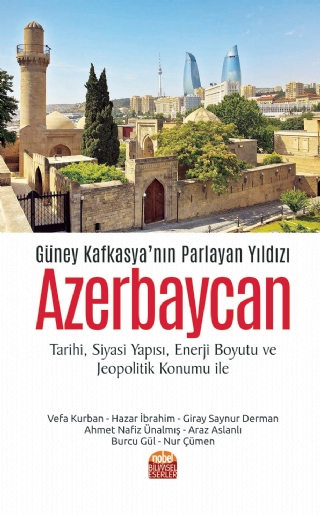
Jeopolitik önemi, doğal kaynak zenginliği ile büyük güçlerin mücadele merkezi olan Azerbaycan, Güney Kafkasya'nın parlayan yıldızıdır. Bu kitapta; Azerbaycan'daki ilk devlet yapılanmalarından hanlıklar dönemine, Rus işgallerinden Ermeni katliamlarına...
Devamını Göster
Sovyetler Birliği'nin çökmesi ile uluslararası sistemin yapısında meydana gelen yapısal dönüşüm, devletlerin dış politika stratejilerini de doğrudan etkilemiştir. Soğuk Savaş döneminde ülkelerin güvenlik kaygıları ve tehdit algıları büyük ölçüde ideolojik sınırlar çerçevesinde belirlendiği için, dış politika seçenekleri de buna uygun olarak...
Devamını Göster
Bu kitap, zengin medeniyetlere ev sahipliği yapmış ve tarihin akışını ...
Devamını Göster
Kazakistan’ın Türkiye Politikası adlı bu kitap, Kazakistan’ın Türkiye’ye yönelik politikasını belirlerken hangi faktörleri göz önüne aldığını ortaya koymaktadır. Bu çalışmada, Kazakistan’ın Türkiye politikasının ortak dil, soy, din ve tarih anlayışından hareketle oluşturulduğu savının aksine, Kazakistan’daki iç yapısal faktörlerin (lider e...
Devamını Göster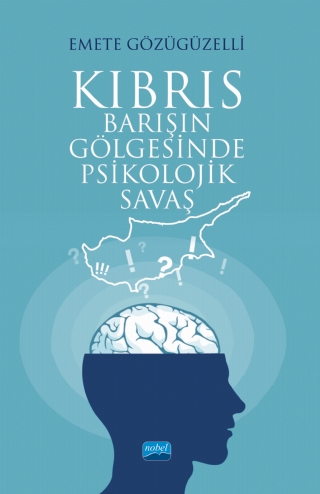
Bu çalışma, Kıbrıs’ta Türkler üzerinde uygulanan siyasi ve psikolojik savaş hamlelerini incelemektedir. Uygulayanlar, ABD’nin USAID’inden İngiliz Yüksek Komiserliği ve Slovak Büyükelçiliği nezdinde yürütülen ada içi faaliyetlere kadar geniş bir yelpazeye yayılmakta ve askeri istihbarat birimlerine kadar uzanmaktadır.
Askeri ve askeri ...
Devamını GösterAskeri ve askeri ...

Bu çalışma, Kıbrıs sorununu, ekonomi-politik ekseninde (ekonomi ve siyaset başta olmak üzere dış politika, jeoekonomi, entegrasyon, tarih, strateji vb. açılardan) tartışabileceğimiz bir derleme kitaptır. Kitap; akademik, siyaset ve medya çevrelerinin yazdığı makaleler üzerine kurgulanmıştır. Kitabın temel hareket noktası; “Kıbrıs nasıl bir...
Devamını Göster
Bu kitap, yüzlercesi gibi özgürlük ve bağımsızlık arayışının başladığı dönemden itibaren meydana gelen sosyo...
Devamını Göster
Osmanlı İmparatorluğu'nun geniş coğrafi dağılımında hiç kuşkusuz en önemli kurumsal oluşumların başında vakıflar gelmektedir. Vakıf kurumu, şehir tarihi ve sosyalkültürel yapı araştırmalarında önemli bir kaynak olarak karşımıza çıkmaktadır. Bu kurumun araştırılması, ilgili bölge ve şehrin kuruluşu hakkında zengin bilgiler sunma...
Devamını Göster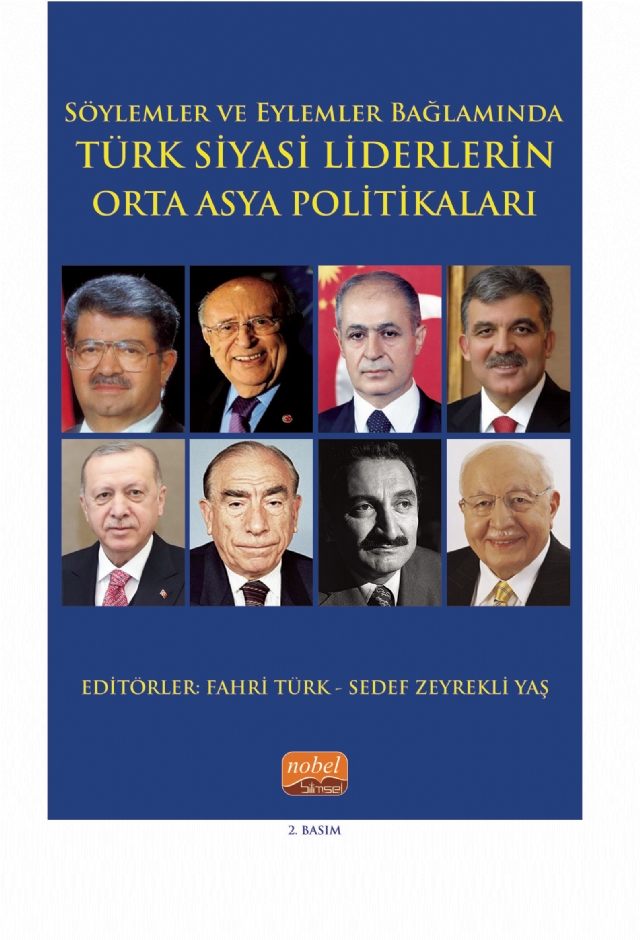
Bu kitap kapsamında Türkiye Cumhuriyeti cumhurbaşkanlarının (Turgut Özal, Süleyman Demirel, Ahmet Necdet Sezer, Abdullah Gül ve Recep Tayyip Erdoğan) ve Türk siyasal hayatında derin izler bırakmış üç liderin (Bülent Ece...
Devamını Göster
Suriye'deki iç karışıklıklardan sonra ülke gündemine yerleşen Süleyman Şah Türbesi’yle ilgili titiz bir çalışma sunuyoruz sizlere. Yakup Kaya ve Görkem Ozan Özalp'in uzun bir emeğin sonucu olarak hazırladıkları “Süleyman Şah Türbesi / Bir Vatan Toprağı” başlıklı kitap; Süleyman Şah'ın kimliğini, türbede gerçekte kimin yattı...
Devamını Göster
2009 yılında kurulan Türk Devletleri Teşkilatı (TDT), eski adıyla Türk Dili Konuşan Ülkeler İşbirliği Konseyi (Türk Konseyi) beş üye devlet
-Azerbaycan, Kazakistan, Kırgızistan, Türkiye ve Özbekistan- ve iki gözlemci devlet -Türkmenistan ve Macaristan- arasındaki yoğunlaştırılmış iş birliğinin kurumsallaşması sonucunda yükselen bir ...
Devamını Göster-Azerbaycan, Kazakistan, Kırgızistan, Türkiye ve Özbekistan- ve iki gözlemci devlet -Türkmenistan ve Macaristan- arasındaki yoğunlaştırılmış iş birliğinin kurumsallaşması sonucunda yükselen bir ...

Soğuk Savaş sonrası oluşan küresel ve bölgesel dengeye bağlı olarak 2009 yılında Azerbaycan-Nahçıvan'da kurumsal yapısı oluşturulan Türk Devletleri Teşkilatı, 12 Kasım 2021 tarihinde İstanbul'daki zirvede alınan kararla Türk Dünyası 2040 Vizyonu ile Türk devletlerinin her alanda iş birliği yapmasına yönelik bir strateji belirlemiştir. Bu s...
Devamını Göster
Tez danışmanlığını yaptığım Vusal Hasanzadeh, Azerbaycan'ın ve Türk dünyasının önde gelen aydınlarından biri olma yolunda ilerliyor. Yüksek lisans çalışmasına dayanan bu araştırma çalışmasında da Soğuk Savaş'ın bitişinden günümüze kadar olan Türkiye ile Türk Cumhuriyetleri arasındaki ilişkileri entegrasyon teorilerinden biri olan yeni i...
Devamını Göster
Kültür başkentleri görece yakın dönemde başlamış bir uygulama olarak kültür ve kültürel ürün...
Devamını Göster
Türk dünyası; zengin bir tarih, kültür ve coğrafya mirasıyla büyüleyici bir bütün olarak öne çıkar. Türk dünyası; Türklerin tarih, kültür, dil ve soy bağları aracılığıyla birbirine bağlı olduğu bir kavramdır. Ayrıca Türk dünyası, Orta Asya'dan Balkanlar'a kadar uzanan geniş bir coğrafyada bulunan Türk devletleriyle karakterizedir.
Tü...
Devamını GösterTü...

1991'de Türk Cumhuriyetlerinin bağımsızlığını kazanması Türkiye'ye büyük fırsatlar sunmuştur. Özellikle yetmiş yıl boy...
Devamını Göster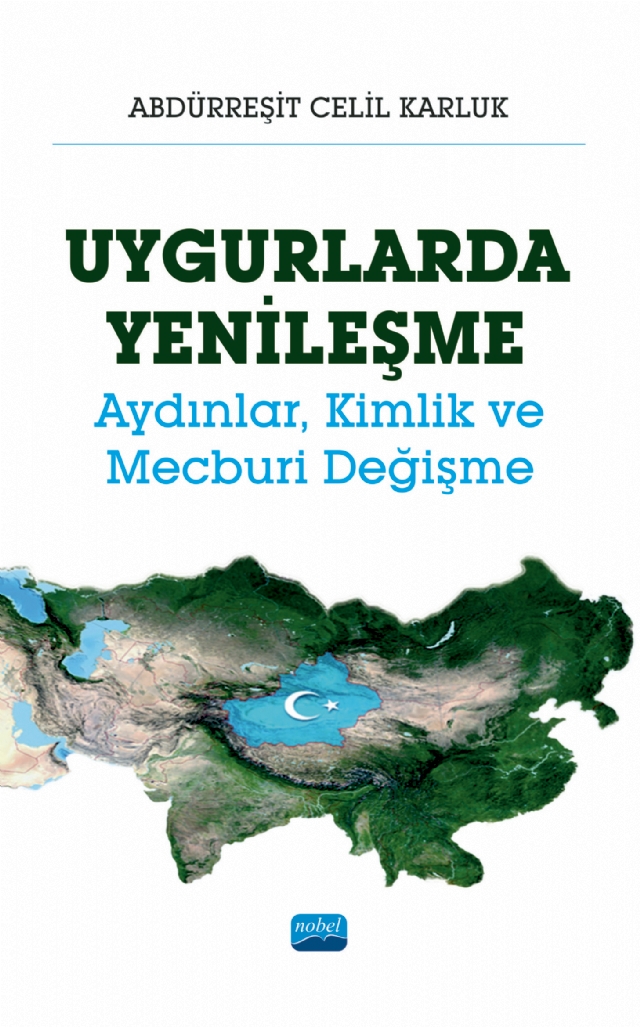
Türk tarihinin Rönesans’ı olarak isimlendirebileceğimiz Karahanlı çağının mimarları olan Hakaniye Türkleri ile İdikut Uygurları günümüzde “Uygur” olarak adlandırılmaktadır. Umumi Türk uygarlığının teşekkülü ile gelişimi sürecinde müstesna yeri olan Doğu Türkistan'lı Türk toplumu, 18. yüzyılın başlarından itibaren devam eden iç sa...
Devamını Göster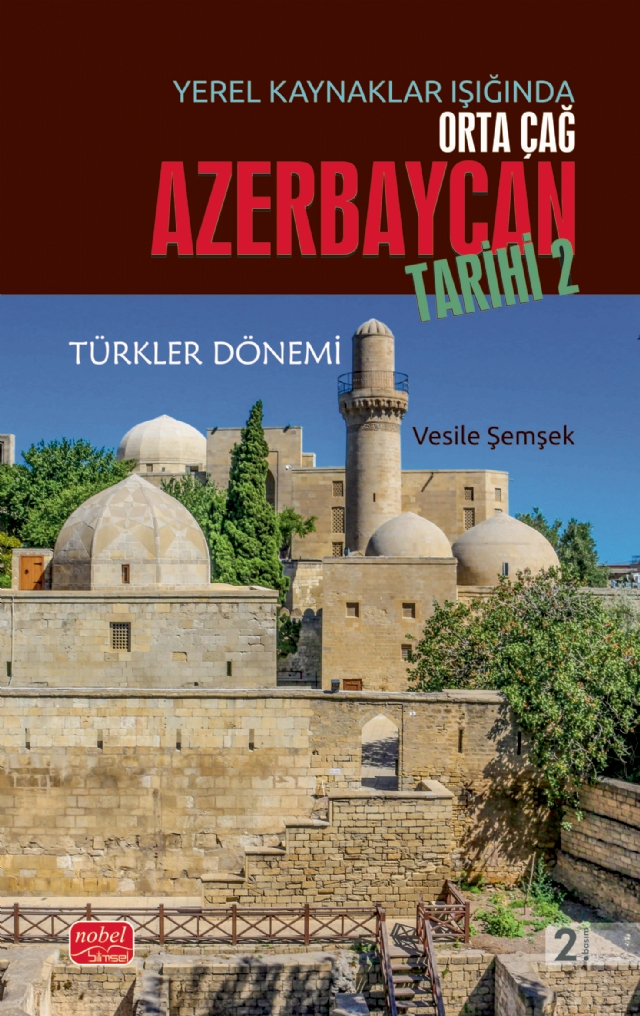
Türk İslam tarihinde önemli yere sahip Azerbaycan, siyasî ve kültürel anlamda Orta Çağ'ın başlamasıyla daima dikkat merkezinde olmuştur. XI-XV. yüzyıllar arası fetihler sonrası yayılan İslam medeniyeti, dünya tarihinin dönüm noktasını teşkil etmekte ve bu bağlamda Orta Çağ dünya medeniyet tarihinin de temelini oluşturmaktadır. Türklerin bö...
Devamını Göster


